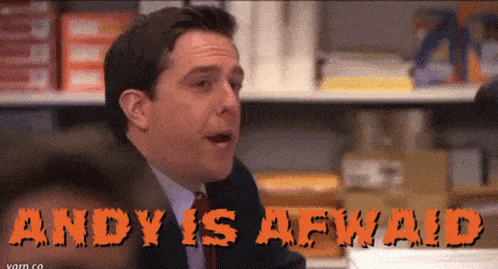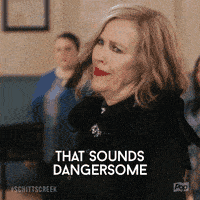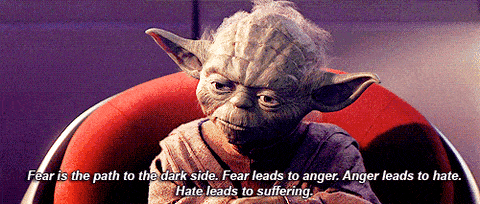Because it’s October, I’ve been watching a few scary TV shows and movies to get into the Halloween spirit. I’m not particularly a fan of the horror genre, but it’s fun to indulge every once in a while, especially during this time of year. There’s a certain thrill to being scared.

The show my wife and I just finished watching was Midnight Mass on Netflix. It’s from the same creators who did The Haunting of Hill House and The Haunting of Bly Manor. Not to deter anymore from watching it, but I didn’t love it and I didn’t think it was that scary. I think the reason I didn’t find it scary was that from basically the beginning of the show I knew what the monster was.
Which got me thinking that what makes a scary movie scary is the unknown. The first half of a horror movie is typically scarier than the second half because we don’t know what’s going to happen. We don’t know who or what is making people disappear. The house is haunted but we don’t know how it came to be haunted or what it will mean for the people living there.
Michael Meyers is at his most terrifying when he’s lurking in the shadows just off-camera and we don’t know exactly where he is or what he plans on doing.

The unknown lets our imaginations run wild and come up with a myriad of horrifying possibilities in our minds. As I watch these movies, I commonly find myself scared and nervous at the beginning and somewhat let down after the reveal at the end. The build-up always seems to be scarier than the reveal.
Apart from simply wanting to share this theory with other people besides my wife, I share it to illustrate that uncertainty is scary. And while uncertainty is fun within the confines of a horror movie, it’s not fun when it comes to your money.
Uncertainty about what the future will bring is what keeps a lot of people from investing. That’s why so many people would rather put their hard-earned money in a savings account where inflation will slowly erode its value, than subject it to the uncertainty of the stock market.

A scary, unknown future also causes people to seek out forecasters or search for people who look like they know what they’re doing to try and bring some clarity about what’s coming next.
Even though financial forecasters are wrong as often as they are right, people still crave their thoughts because strong opinions are comforting while shrugging your shoulders feels reckless when the stakes are high. As Josh Brown says:
“We’re all just guessing, but some of us have fancier math.”
Don’t let the fear of the unknown cloud your decision-making. A lot of financial mistakes can be traced back to people trying to predict or time perfectly what’s going to happen in various markets.

As opposed to trying to predict the future, it’s usually more helpful to prepare for the future. Predictions are about trying to be precisely right while preparation is about setting the right expectations. For example:
Prediction: It’s time to get out of stocks completely and go to cash.
Preparation: What’s the right amount of cash I need to get me through the inevitable downturns in stocks?
Prediction: The stock market is going to crash this year.
Preparation: The stock market is going to crash a handful of times in my investing lifecycle but I have no idea when they will occur. Here’s exactly what my investment plan says I should do regardless of what happens in the market tomorrow…
I love this quote from Morgan Housel:
“If something is impossible to know you are better off not being very smart, because smart people fool themselves into thinking they know while average people are more likely to say, ‘I don’t know’ and end up closer to reality.”
Yes, the unknown can be scary. But the good news is that the ability to successfully predict the future is not a requirement for successful investing. In fact, it’s completely unnecessary.
What is required is accepting that you can’t predict the future …and a lot of patience.
Thanks for reading!

